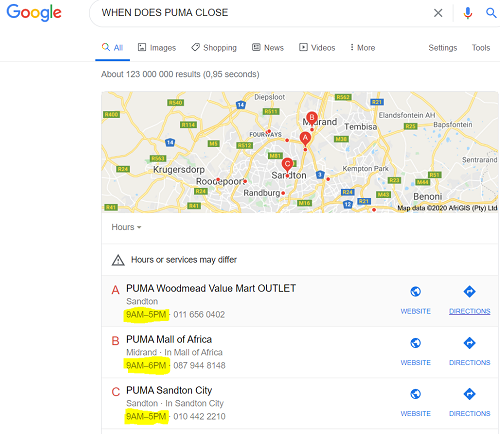10 Things You Probably Didn’t Know About SEO
As we all might know this from experience, the ever-changing principles and rules of SEO tend to be both exciting and frustrating at the same time. Just when one has finally gotten it right and mastered that difficult SEO technique, Google decides to update their algorithm, thereby throwing all your work into a state of flux. This will, in turn, affect the overall ranking of your site.
So, as a webmaster, you need to stay in the loop of everything that’s happening in the realm of SEO. Why? So that you can reach that goal at the end of the day – drive traffic to your site, increase your trustworthiness, and boost the conversion rate.
10 Things You Should know about SEO
Below are some of the top ten things you probably didn’t know about SEO.
1.You Probably Won’t be Penalised for Duplicate Content
It might come as a surprise for you to hear that having duplicate content won’t get you penalised by Google. Here’s a quote from Google’s Search Quality Evaluator guidelines that was published in 2017:
“The lowest rating is appropriate if all or almost all of the MC (main content) on the page is copied with little or no time, effort, expertise, manual creation, or added value for users. Such pages should be rated Lowest, even if the page assigns credit for the content to another source.”
This means that Google will only penalise a site if they copy content from another site, not for duplicating their own. In a case were your site has duplicate content, be sure to use a canonical tag as this will notify the search engines what your preferent content is, thereby avoiding a penalty.
2. Links Are Not a Ranking Factor for All Search Engines
There are now search engines that don’t include links as a ranking factor. For instance, Yandex – the biggest search engine in Russia doesn’t consider backlinks when ranking a website anymore.
As most of their search engines are reported to be rife with black-hat SEO, Yandex stated that their algorithm is now link-free, and this is something that other search engines might just be expected to follow suite.

3. A Video will most likely Rank on the First Page
YouTube is currently the second biggest search engine in the world and stands to be many people’s first choice for watching online videos. Not only are videos much easier or attractive than actual text content, but Google also owns YouTube, so it’s also fair for it to be favored by Google search engine.
Videos are reportedly 53 times more likely than actual text content to appear on the first page. This increases the traffic or visitors to your site, engage visitors, reduces the bounce rate, and will also boost your site’s rankings.
4. You mustn’t Google Yourself to Check Your Ranking Position
To find out where your site or a certain keyword is ranking, it is advised that you turn on the incognito mode if you’re using Google Chrome.
If you don’t use the incognito mode, there’s a chance that you’ll be receiving personalised results as Google might be showing you URLs based on your previous searches.
5. There’s no need to submit your site for Indexing
Apparently as webmasters, we do not necessarily have to submit our websites for indexing as it is said that search engines will still find our sites regardless. Submitting it will not have it indexed faster. Crawlers will still get to it and index it at their own time.
6.There’s no ‘magic’ number of times a keyword should be repeated in your content
If you’d like to know the magic number of times you must repeat a keyword within a page, then you might not find it. All you have to do is to make sure that the keyword is included in your H1, some of your H2s, URL and within the content as much as necessary for the content to read well and make sense. You don’t want to bore your visitors by repeating the keyword in each and every sentence as this may result in increased bounce rate.
7.Google Hired Search Evaluators that Review the Quality of a site
It is reported that Google hired 40 000 precision search assessors who will be evaluating and reviewing the quality of different search results. Therefore, it might be very helpful for SEO experts to review the evaluator’s extensive guidelines so that they familiarise themselves with the desired rules.
8.Rich Snippets Have no Direct Impact on your Rankings
Rich Snippets have been offering visitors a sneak peak of what a page entails in search engines since 2009. But, contrary to popular belief, rich snippets might not have any direct impact on a page’s rank position. According to the WebMaster Help forum, all they do is just to provide additional information to a search result, will not in any way influence the rankings.
Though they might not have any benefit when it comes to the ultimate goal of SEO, rich snippets might make it easier to have a page or website indexed. They also play a vital role by convincing users to check out your website. This will result in increased traffic as well as conversion rate, which might in turn help to improve your rankings in the search engine results pages.
9.Featured Snippets are Actually Great for Your Site!
Now, we all have used these before and know how they work. When one searches for a common question or are looking for specific information, for instance, ‘when does Puma close,’ the answer is mostly displayed on top of the search results. This means that the user doesn’t have to click anything to see the response to their query.

It’s also important to know that sites that are linked to these answers tend to have many more clicks to their websites, NOT less. There was a time where there was a myth spreading that it was actually the total opposite but then, extensive research has proven that to be wrong.
10. Google Updates its Algorithm Three Times a Day
Many webmasters have probably heard of Panda, even Mobilgeddon, but then, do most of them also know about Fred? And all the other countless updates from Google that don’t make the headlines?
Don’t let your guard down by waiting for that big announcement because it is believed that Google has its algorithm updated not once, twice, but three times a day! This is because Panda software is regularly learning for itself, therefore automatically making updates in real-time.


